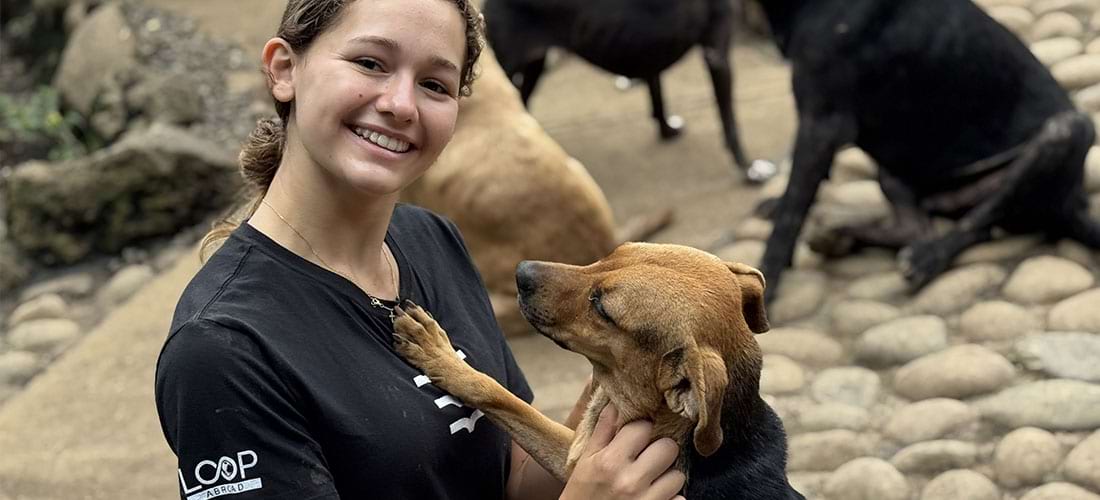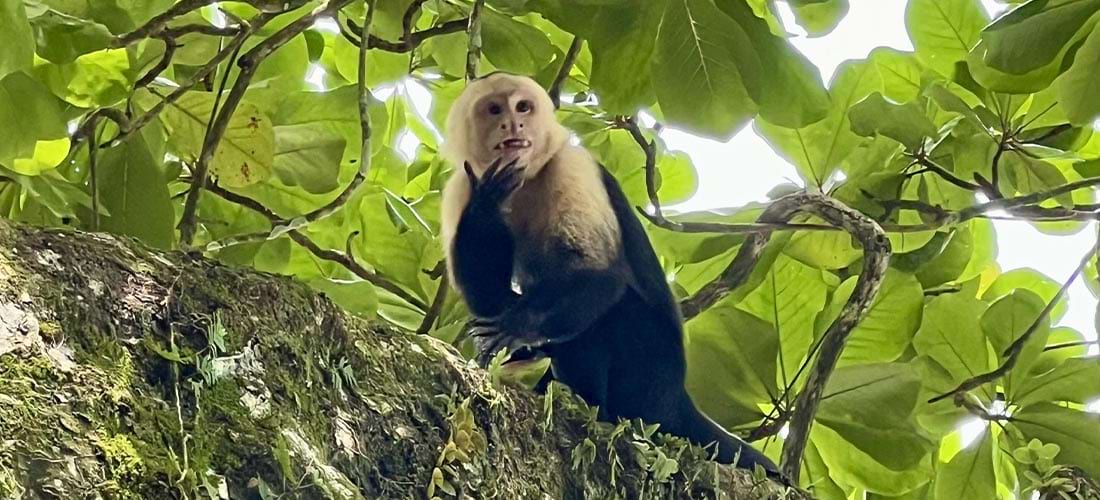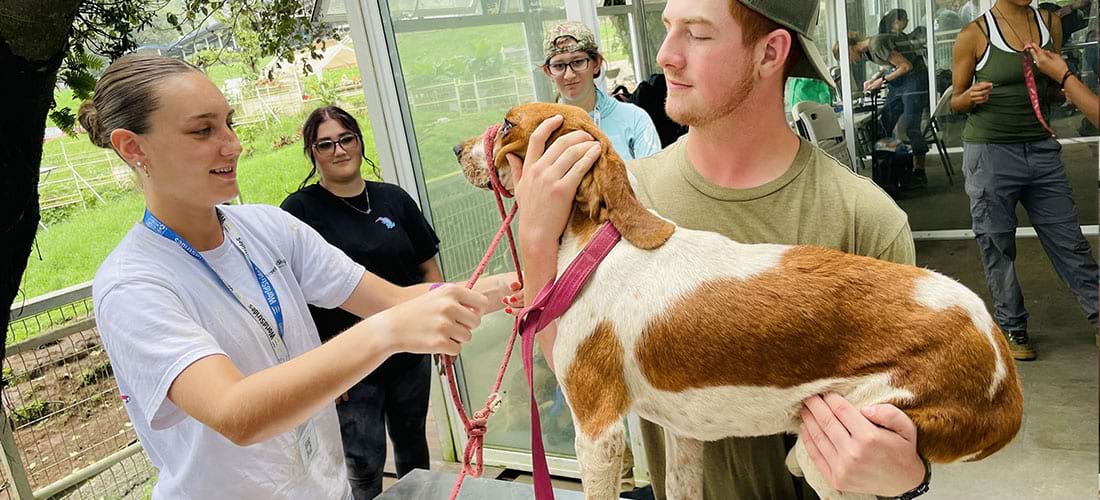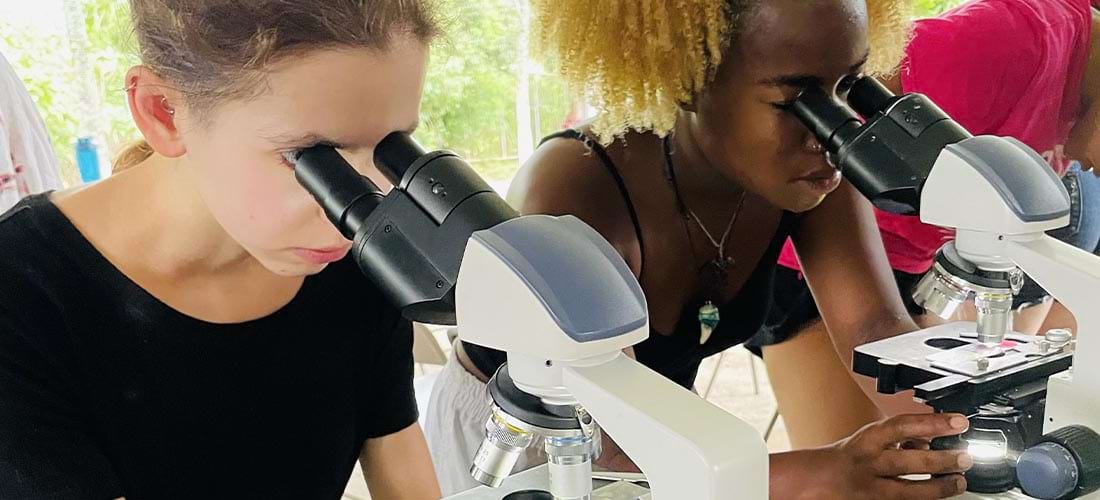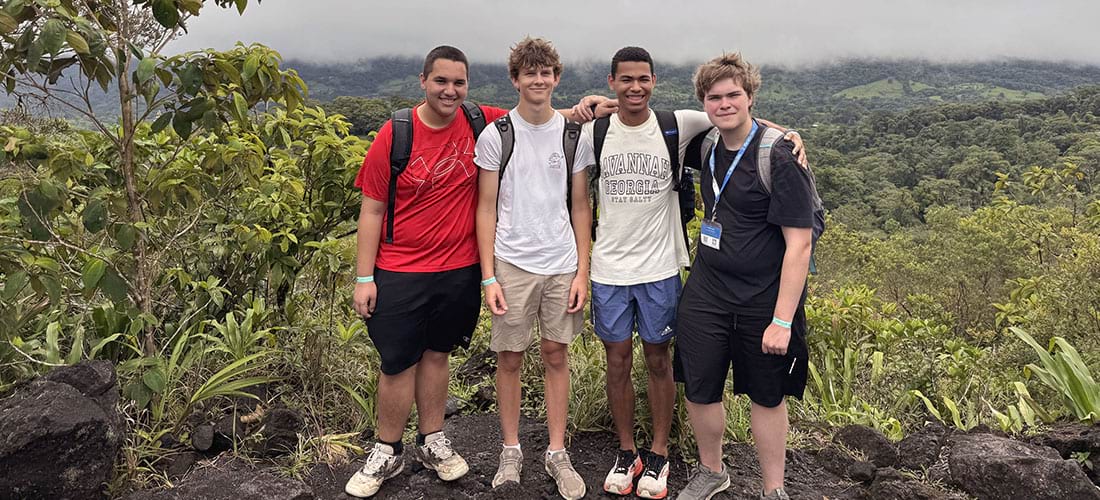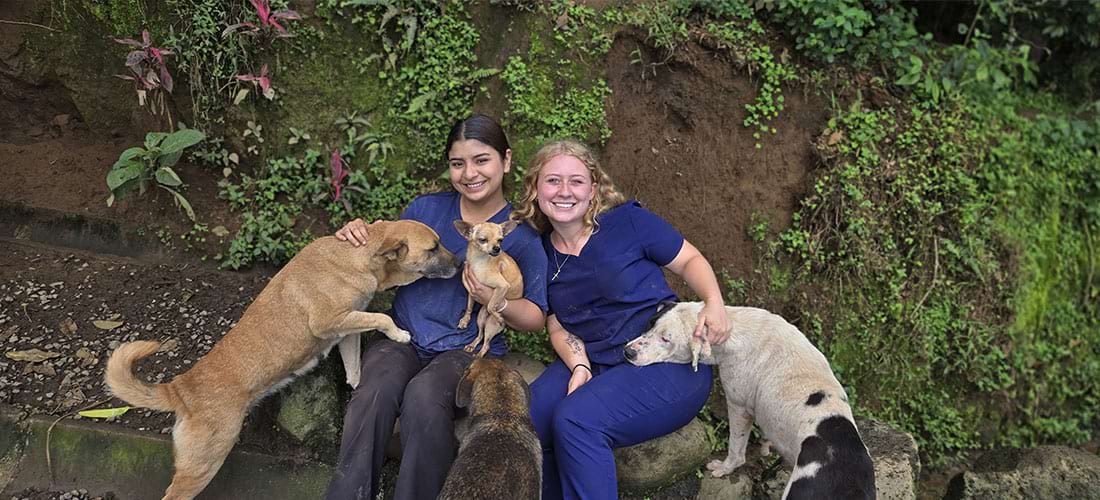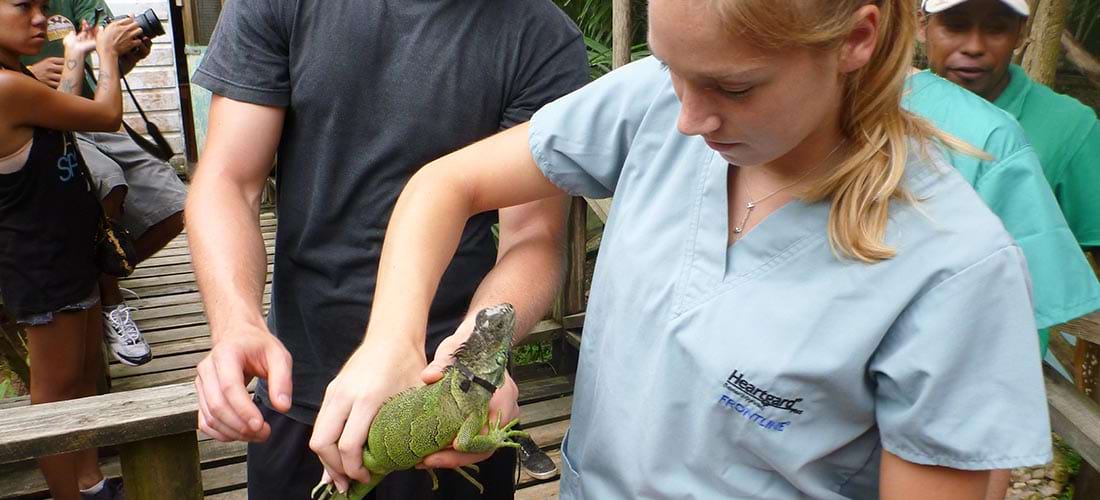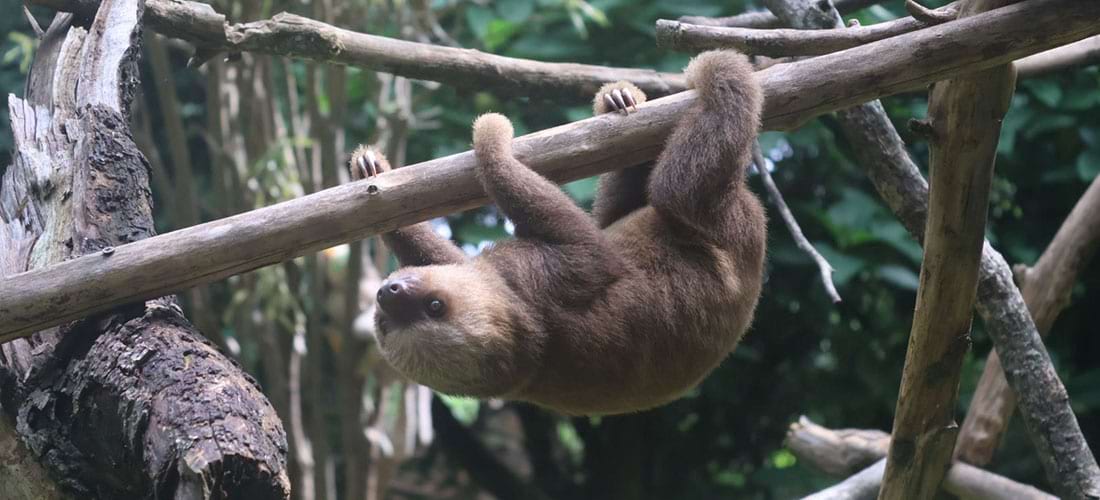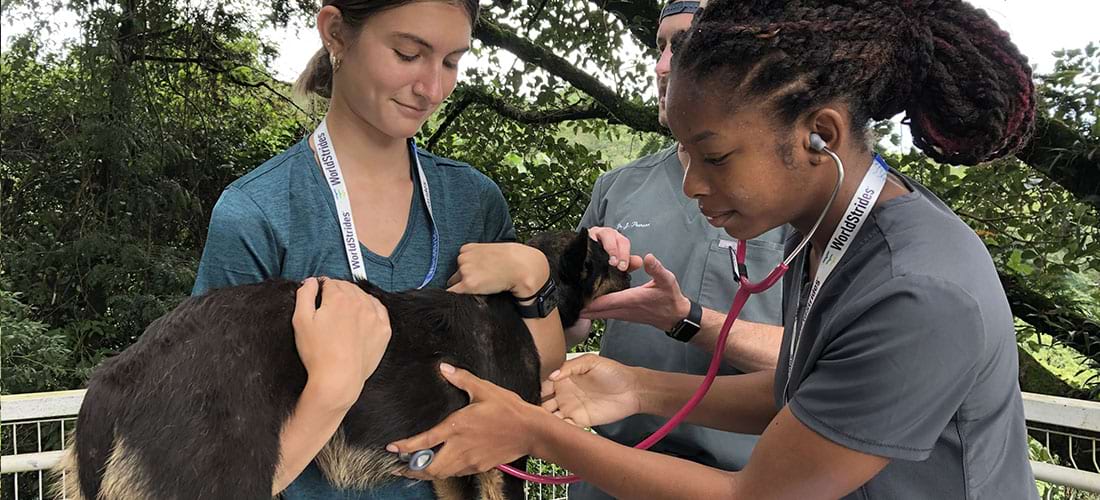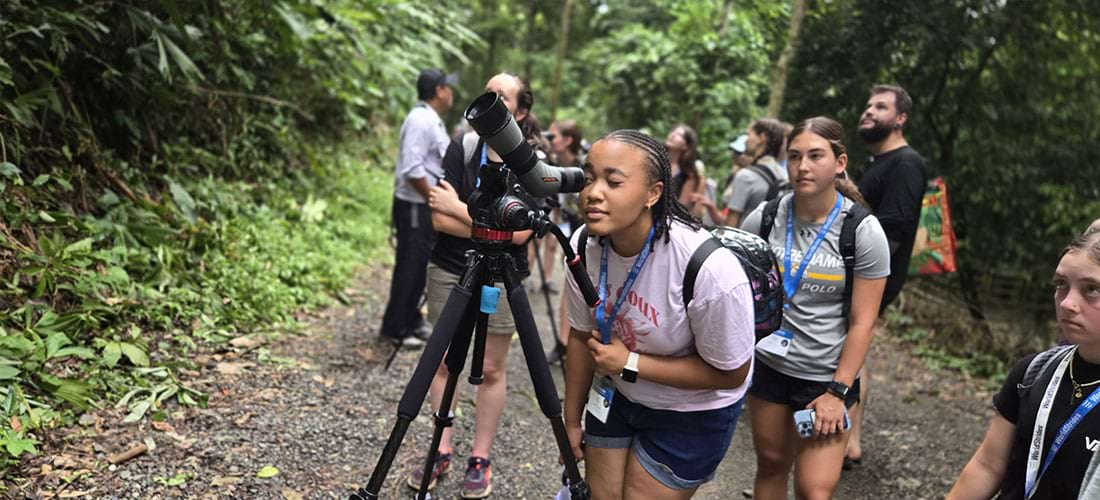Veterinary Academy: Costa Rica
Immerse yourself in the wide world of veterinary medicine! You’ll spend two weeks in Costa Rica, working and learning at a stray dog sanctuary and at a wildlife rescue center.
At the dog sanctuary, you’ll spend your days assisting the vets as they provide care to over 1,800 stray dogs. At the rescue center, you’ll provide care for animals that have been the victim of wildlife trafficking.
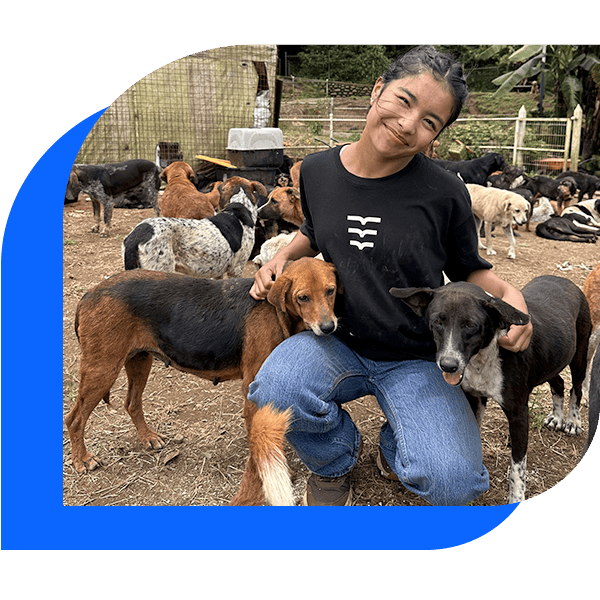
Prepare for the future
- Participating in clinical lab rotations to practice skills like using the microscope to conduct ear & skin cytologies
- Creating post-surgery care plans for dogs recovering from procedures, including spay and neuter surgeries
- Honing your clinical skills, including taking stray animal histories and safe handling and restraint techniques
By attending Veterinary Academy: Costa Rica, you can earn up to 80 veterinary hours, a required part of every vet school application.
2026 Program Dates & Tuition
- 14 Days
- June 21-July 4
- July 19-August 1
- $7,199
What’s Included
Local meals
Accommodations
10:1 Teaching Vet-to-Student Ratio
Up to 80 veterinary hours
Program Highlights
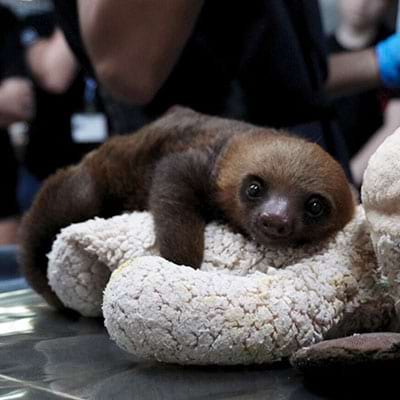
Animal Rehabilitation
Learn what it takes to practice long-term care for animals that have been the victim of wildlife trafficking or who otherwise need care, including for special species like toucans, spider monkeys, porcupines, and kinkajous.
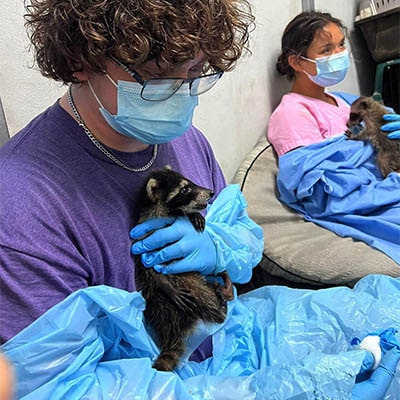
Hospital Rotations
You’ll take turns rotating through different shifts in the on-site animal hospital. You can look forward to providing enrichments for the large sloth enclosures, shadowing clinical staff as they perform physical examinations, and performing ethograms in the lab.
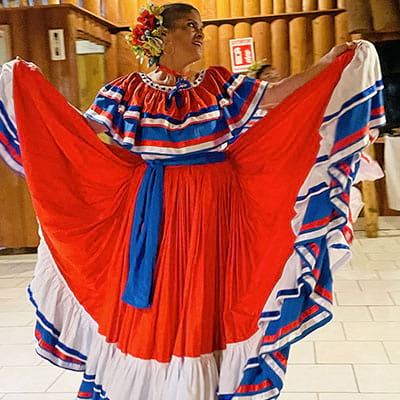
Cultural Immersion
After a full day of learning, you can look forward to a fun, culturally enriching group activity, from taking a dance lesson with a local instructor to a Spanish trivia game to an art project inspired by the motifs of Costa Rica.
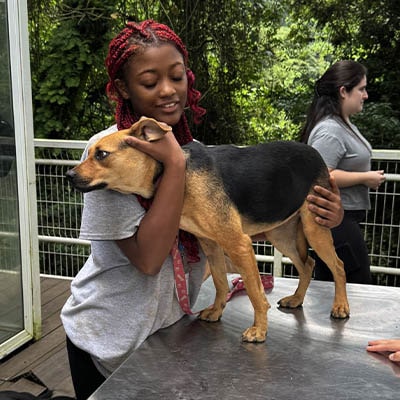
Spay and Neuter Project
On your final program day, you will assist the clinic veterinarians and professional staff to provide a free spay and neuter clinic for the pets of local community members.
Your Adventure, Day by Day
Day 1
Journey to Costa Rica
Day 2
Learning Rotation I
Day 3
Learning Rotation II
Day 4
Manuel Antonio National Park
Day 5
Learning Rotation III
Day 6
Learning Rotation IV
Day 7
Excursion to Arenal Volcano and Hot Springs
Day 8
Travel to San José
Day 9
Welcome to the Land of the Strays
Day 10
Domesticated Animal Care
Day 11
Rescate Rescue Center
Day 12
Hike with Dogs
Day 13
Spay & Neuter Day
Day 14
Departure Day
What some of our students and their parents are saying…
Dr. Marisa was such a good teacher and vet. She worked with all of us as individuals and I truly felt she cared.”
My experience in Costa Rica was eye-opening, insightful, and enriching. I now feel more confident in my future academic ventures.”
Want to learn more? Fill out this form to schedule a call with one of our advisors
By submitting this form, I confirm that I am at least 13 years of age and provide my written consent for WorldStrides to contact me using email or telephone—including the use of automated technology and prerecorded messages for calls to any wireless or residential telephone number I provide. This consent is not required to purchase goods or services.
**Available in the U.S. only. Message and data rates may apply. You may opt out of text messaging at any time by replying STOP.
For the safety of students, staff, and animals, not all animals may be touched or handled by participants. The teaching veterinarian and other professional staff members will advise students of the proper time, place, and method to handle animals when it is safe to do so.

